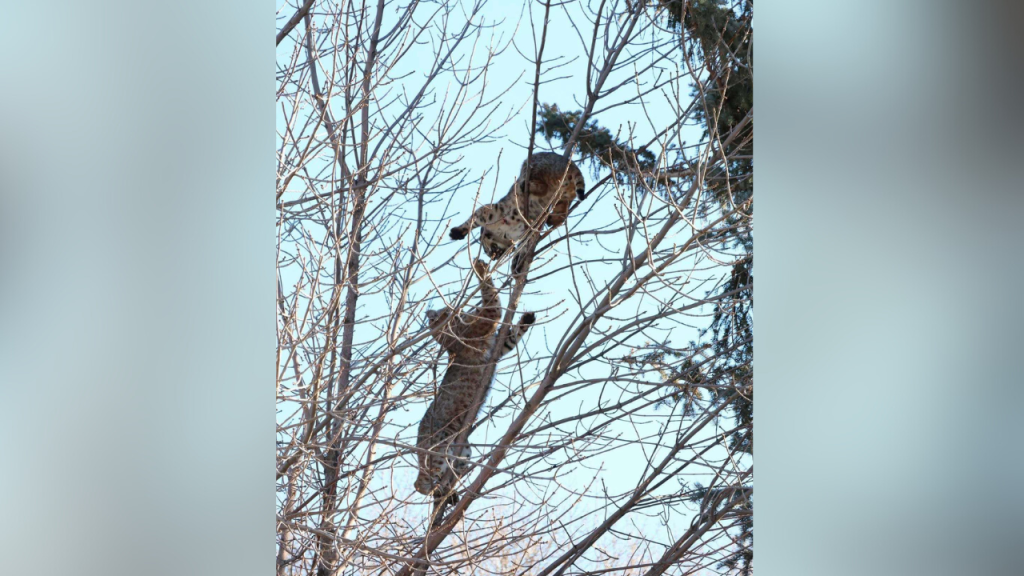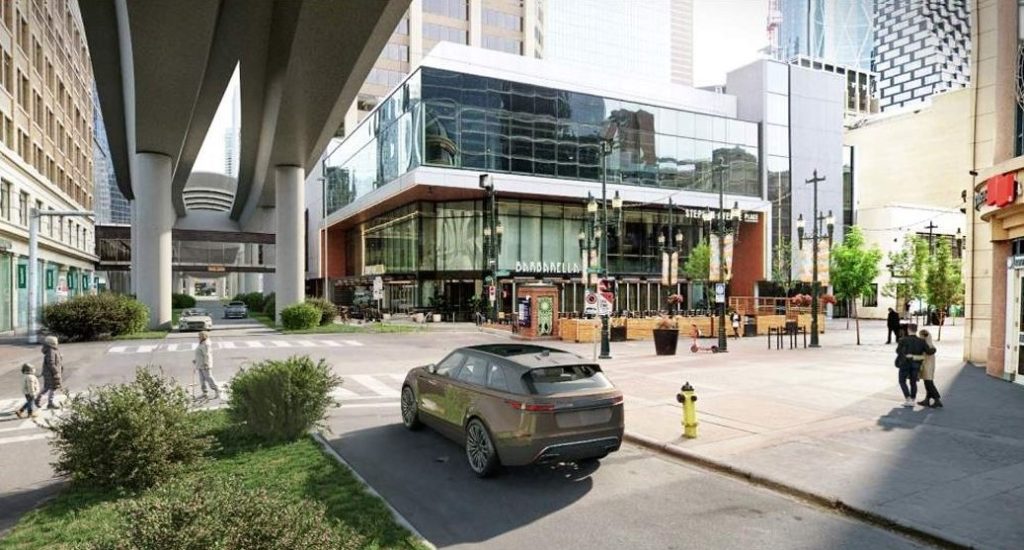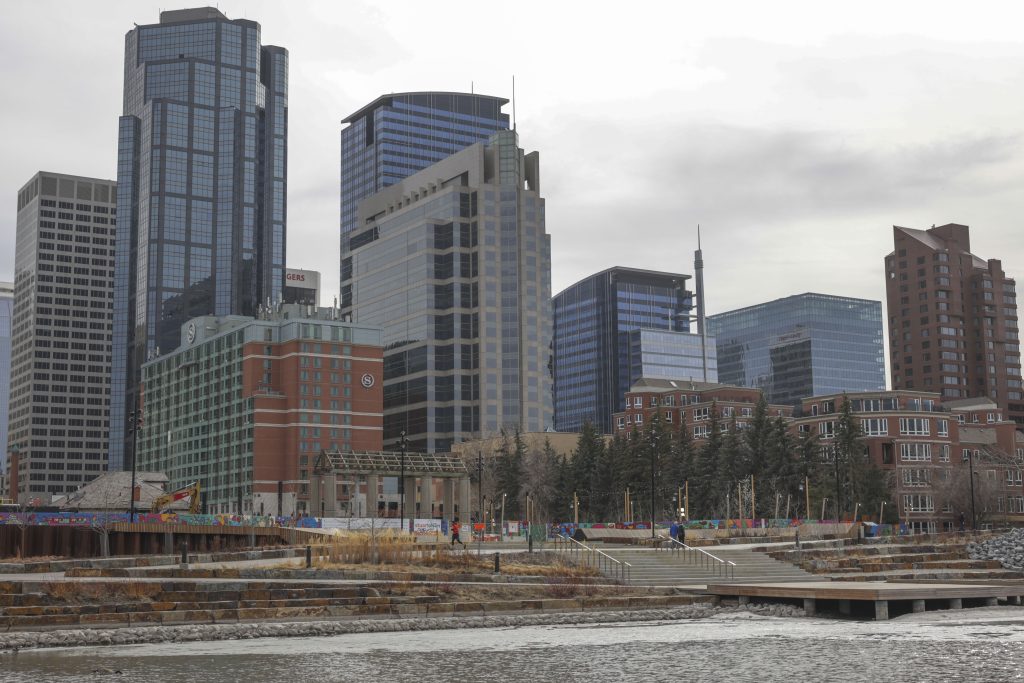Alberta wildfire: Evacuee numbers drop as fire crews brace for heat
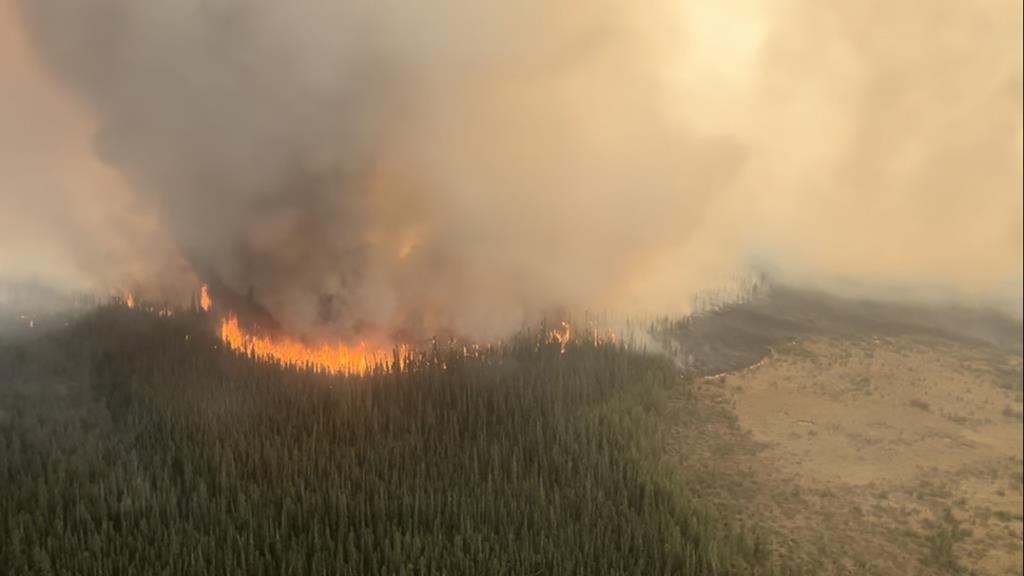
Posted May 10, 2023 6:18 pm.
Last Updated May 11, 2023 10:04 am.
Alberta wildfire evacuee numbers dropped Wednesday, but thousands remain out of their homes as firefighters brace for hotter conditions in the coming days.
Colin Blair, director of the Alberta Emergency Management Agency, said the number of people out of their homes had fallen below 18,000 from about 24,000.
“Alberta continues to be under a provincial state of emergency, and the provincial Emergency Coordination Center remains at a level four,” he said Wednesday in Edmonton.
“In addition to the provincial state of emergency, there are 20 states of local emergency, as well as four band Council resolutions and 13 evacuation orders, are in place.”
There have been around 423 wildfires in 2023, more than double the average in a typical wildfire season in the province.
Alberta’s wildfire dashboard shows close to 80 active fires Wednesday, with around 23 fires classified as “out of control,” clustered in the western half of the province.
Evacuations to First Nations
The danger of wildfires also forced the evacuation of part of a First Nation southwest of Edmonton.
Corrine Bell with the O’Chiese First Nation Emergency Management Response Team said 103 people have been forced to leave the northern area of the reserve. One home has been lost, and several have smoke damage.
“We’re taking advantage of the gap in weather to tend to hot spots,” said Bell, adding the community is hoping the wind won’t change directions.
Six nearby First Nations have also offered their fire services to help.
“We’ve had an amazing support system from First Nations,” Bell said.
Indigenous Services Canada said wildfires were threatening nine First Nations, including the Little Red River Cree Nation in northern Alberta, where more than 100 structures have been lost in the community of Fox Creek.
It said it’s helping the First Nation set up temporary housing in nearby John D’or Prairie for 500 people, including a commercial kitchen and other amenities.
Watch: Alberta wildfires threatening deprive Indigenous communities
With no road into the community, about 3,700 people had to leave by barge and boat.
In Brazeau Country, west of Edmonton, Gary Edwards said he came back to his home shortly after the area was evacuated to help prevent the fire from getting to nearby properties.
“I’m extremely fortunate with the community that I have around me because they saved my house and my barn, and we saved several other houses and farms around here,” Edwards said.
Edwards said they have a team with a couple of water trucks, pressure trucks and a homemade fire truck.
“We go to the fire and put it out and all the hot spots.”
Zach Dressler, a septic cleaner in Drayton Valley, was also trying to help. Parked outside the Brazeau County office just north of Drayton Valley, Dressler waited in his water truck to get a permit to enter the town that was evacuated Thursday night.
“I’m crying … my mental health is deteriorating really fast because I can’t find somebody to help,” said Dressler.
“We all own fireproof clothing. I have fireproof boots — we do this every day, and we’re being told, no, we can’t help,” said Dressler. “We’re not firefighters, but we’re professionals.”
Dressler said that RCMP has been threatening to arrest and fine those who don’t comply with evacuation orders.
RCMP spokesperson Fraser Logan said Wednesday that no arrests have been made.
Related Stories:
-
Alberta man who saved own property criticizes province’s lack of resources to fight wildfires
-
‘Creeping death’: Alberta farmers band together, protect homes from wildfires
Blair said people who want to support with donations or by volunteering can email EmergencySupportOffers@gov.ab.ca.
“If we require the assistance, we will get in contact,” said Blair.
“We are urging people to follow the evacuation order and listen to the local authorities.”
The province made a plea to Albertans willing to help with the fires on Monday and, on Tuesday, said it received around 100 requests to help.
In addition, there is still no word on the federal army supporting firefighters at this time.
“We are already working very closely with the Canadian Armed Forces,” Blair said. “We have a plan, and we’re ready to go.”
Karen Prevost of Drayton Valley said that she has gone through fire evacuations in previous years.
“I’m alive, and my family is safe,” Prevost said. “That’s all that matters.”
Prevost is currently in Tomahawk, a hamlet about 35 kilometres northeast of Drayton Valley.
“I’m not in a rush to get home even when they do open it, because the grocery stores need time to get their freezers cleaned up and stuff because their power was out,” said Prevost. “People need to be patient.”
Earlier Wednesday, an evacuation order was lifted for the hamlet of Evansburg, Alta., about 120 kilometres west of Edmonton, after residents were told to leave late last month as dry and windy conditions fuelled wildfires that put the hamlet and surrounding rural area at risk.
Heat wave on the way
Christie Tucker with Alberta Wildfire says firefighters battling the widespread outbreak of wildfires have taken advantage of a couple of days of cooler temperatures and low humidity but adds the brief hiatus is about to end.
“Tomorrow, we expect low humidity and high temperatures in the northern boreal, which could make wildfires more active up there,” she told reporters in Edmonton.
“Albertans may see more smoke and activity on wildfires as it warms up towards the weekend.”
Special air quality advisories have been issued in response to wildfire smoke for most of Alberta, as well as central and northeastern B.C.
Read More: Wildfire risk raised as Alberta and B.C. brace for early heat wave
She adds firefighters are prepared to jump in and help, as firefighters from Yukon, British Columbia, Ontario, Manitoba and Quebec have arrived in Alberta to help.
“Firefighters have been working hard preparing for more challenging conditions, building firebreaks around communities and making use of fresh firefighters.,” Tucker said.
The government said Tuesday that crews were also expected from New Brunswick.
Late Wednesday, firefighters from Oregon and Alaska arrived in Alberta and were briefed alongside each other. They have been assigned to fires and will start 14-day fire assignments Thursday.
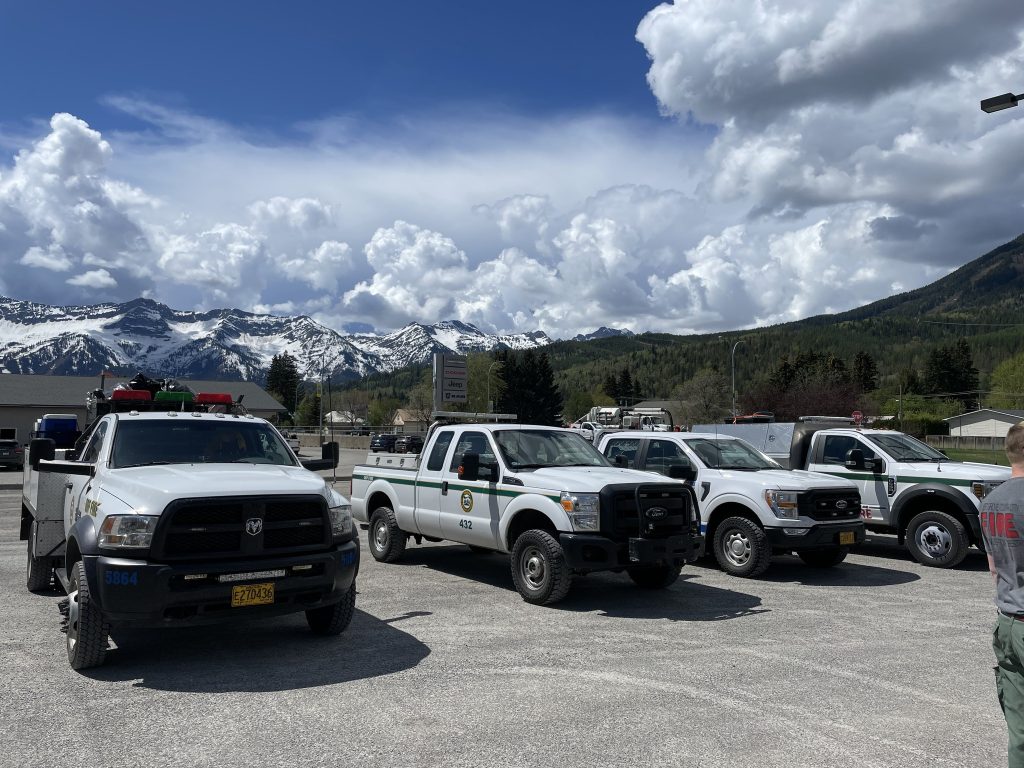
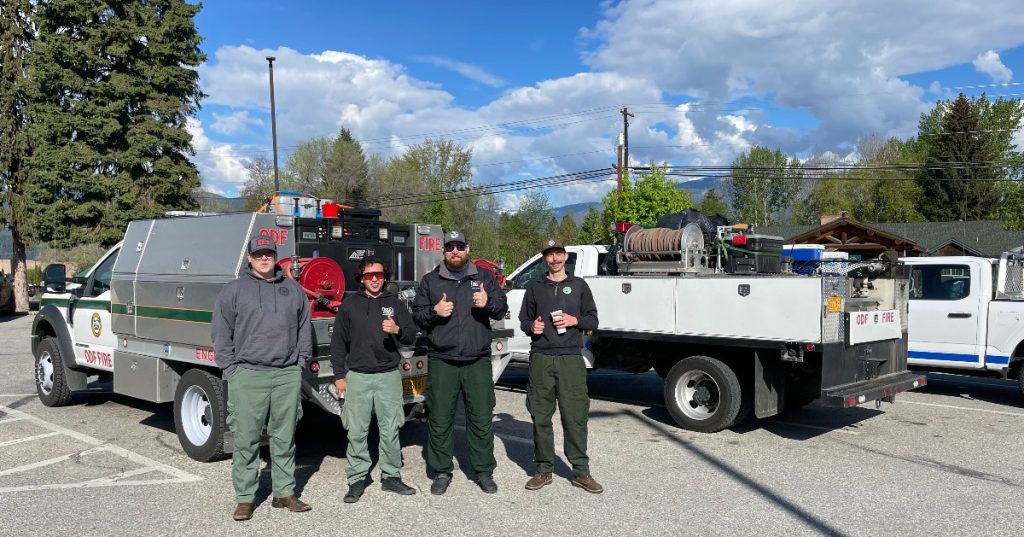
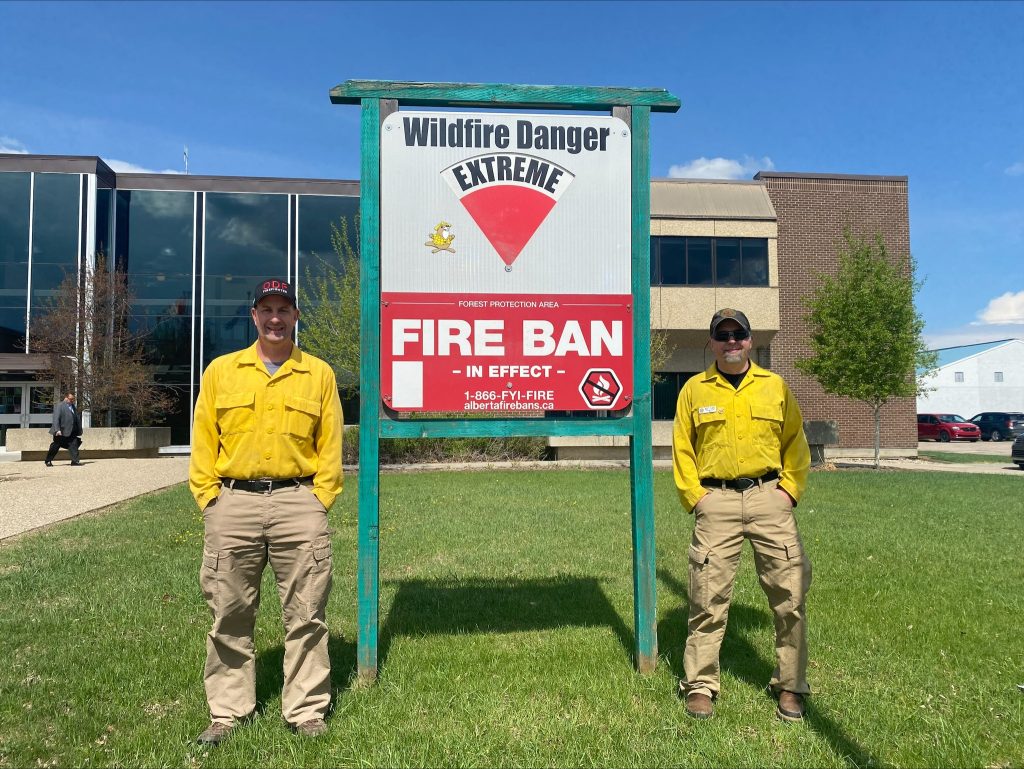
“That’s going to be a much-needed boost for our firefighters who have been at this, some of them around the clock, for quite a while,” she added.
City of Edmonton spokeswoman Lisa Glover said the number of evacuees at the Expo Centre fluctuated Wednesday
“Yesterday, we served about 1,000 meals. However, only 10 individuals stayed the night,” she wrote in an email.
